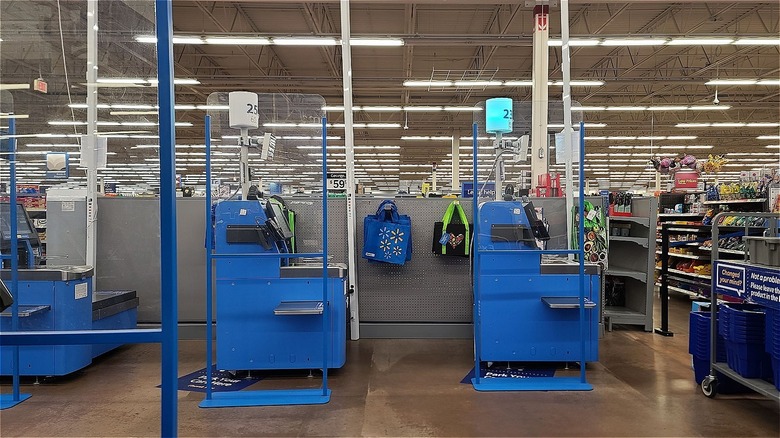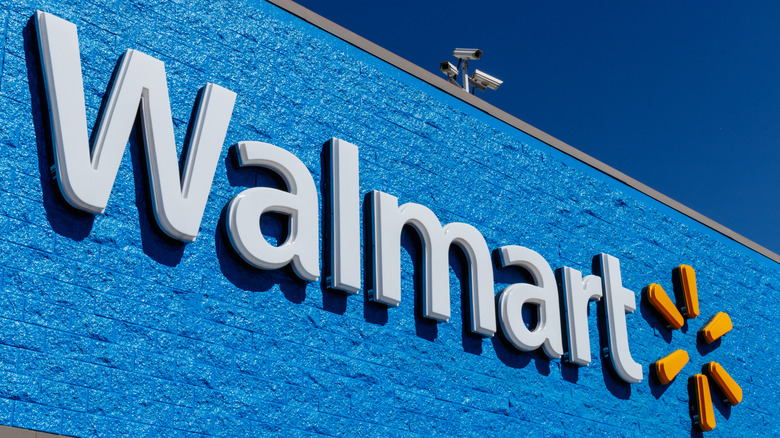'Self-Checkout Reflection' Altered Walmart Customers' Brain Chemistry In 2022
Since they first became common more than 10 years ago, self-checkouts have been fraught with issues of one kind or another, whether for customers or for the store (per Forbes). While we know it's not worth using the self-checkout line for items that need age-verification, but you may not be familiar with how problematic they can be for stores. As annoying as it is for you when the machine starts flashing its error lights, it's just as annoying for stores to maintain one of more dedicated staff just for machine errors — especially since these are supposed to be labor saving machines. Plus, those machines need to be serviced by highly-skilled professionals who are harder to hire (per CNN).
But the most significant problem stores face from these supposed labor savers is shrink loss, or shoplifting. According to Adrian Beck, a University of Leicester professor who has studied retail losses, "If you had a retail store where 50% of transactions were through self checkout, losses would be 77% higher" (via Tellermate).
Now, some Walmart shoppers are charging the machines with altering brain chemistry. It may seem farfetched, but there's some science behind it.
Walmart tries a new angle
Walmart has tried a new angle to curb shrink loss on their self-checkout machines in 2022, one backed by psychology. The addition of self-checkout reflections may seem innocuous enough, but it's actually a psychologically-backed method to alter behavior.
A 1976 study found that when people are in a setting that boosts self-awareness, like while looking into a mirror or listening to their own voice, they are less likely to engage in "antinormative behavior," such as stealing (per Letters on Evolutionary Behavioral Science). Similar research more recently has found that people are more likely to conform to social norms when in the presence of mirrors. As Psychology Today puts it, a mirror allows "people to literally watch over themselves," making them more aware of their own behavior and more likely to self-monitor.
According to research done in Australia on self-checkout reflections, they also increase the perception that one is being watched, hopefully spurring us to be on our best behavior at the store (via Phsy.org). For now, though science says mirrors and reflections could lead to better behavior, experts like Adrian Beck say the machines may not be as efficient in tackling shoplifting as we may think (per Tellermate).

